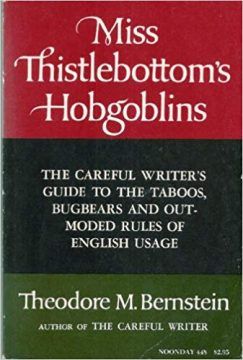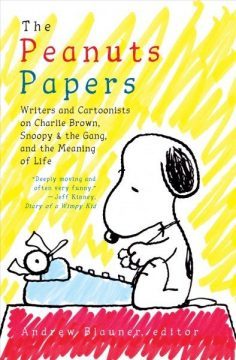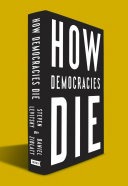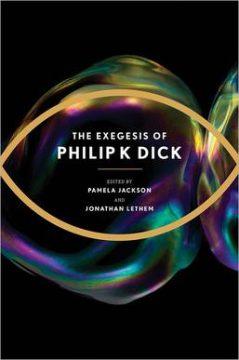by Dave Maier
Here we have either a) a holiday gift guide; b) just another ordinary book roundup; or c) a bunch of mini-reviews each of which just didn’t have the oomph to deserve its own post. Answer provided below!
First up:
 Theodore M. Bernstein – Miss Thistlebottom’s Hobgoblins: The Careful Writer’s Guide to the Taboos, Bugbears, and Outmoded Rules of English Usage (1971)
Theodore M. Bernstein – Miss Thistlebottom’s Hobgoblins: The Careful Writer’s Guide to the Taboos, Bugbears, and Outmoded Rules of English Usage (1971)
Rodney Huddleston and Geoffrey K. Pullum – A Student’s Introduction to English Grammar (2005)
I rarely read Columbia’s alumni magazine, but I did happen to see an interesting exchange (“Verbal Dispute”) in the Feedback section of the Fall 2019 issue. Apparently the cover of the previous issue had read “About 8 million tons of plastic ends up in the ocean every year,” and, perhaps not surprisingly, numerous quasi-literate chuckleheads had conveyed their righteous outrage at the offense to grammar so publicly displayed. Two are quoted; one explains to us that “‘Tons’ is a plural subject that takes the plural verb ‘end up,” continuing witheringly, “Are you a native English speaker? From California? [ooh, snap!] Are you intent on sabotaging Columbia or unqualified and irresponsible?” and so on.
The editor’s response is at once coolly civil and delectably devastating.
While it is certainly true that “end up” is the standard plural form, a singular verb is often used instead when the subject is a phrase that can be viewed as a single unit. This is particularly common when the subject is an expression of quantity or measure, as in “eight million tons.”
He then provides supporting examples from the above authors. I’ve listed the Huddleston and Pullum book I own; the actual quote is from their previous work, The Cambridge Grammar of the English Language (2002), on which the former is based. Their examples are simply brutal. (Try to say these sentences out loud with the plural form of the verb; you won’t even be able to.)
Twenty dollars seems a ridiculous amount to pay to go to the movies. Five miles is rather more than I want to walk this afternoon. Three eggs is plenty. [Yow.]
From Bernstein’s book (which I immediately ordered upon reading this):
You would not [or, you know, maybe you would, if you were a quasi-literate chucklehead] write “Three inches of snow have fallen,” because you are not thinking of individual inches; you are thinking of a quantity of snow that accumulates to that depth. Likewise you would not write “About $10,000 were added to the cost of the project,” because again you are thinking of a sum of money, not of individual dollars.
I’m tempted to quote as well what Huddleston and Pullum say about singular uses of “they,” because it also combines definitive analysis with deliciously polite snark, but let’s move on.
Next we have:
Randall Munroe – Thing Explainer: Complicated Stuff in Simple Words
Randall Munroe is best known for his popular web comic xkcd, but he also has books out under his own name. The subtitle of this one suggests that it’s a children’s book, which uses simple words so that even they can understand. And that’s not exactly false, but Munroe has given this idea an unusual twist, as he explains in the “Page Before the Book Starts”:
This is a book of pictures and simple words. Each page explains how something important or interesting works, using only the ten hundred words in our language that people use the most. […] I liked writing this book because it made me let go of my fear of sounding stupid [that is, for not knowing big words]. After all—when you’re saying things like “space boats” and “water pushers,” everything sounds stupid. Using simple words let me stop worrying so much. I could just have fun making up new names for things and trying to explain cool ideas in new ways.
 The effect of this arbitrary lexical constraint is bizarre and often hilarious. You would think that if you were explaining how dishwashers work, for example, then you would allow yourself to use the word “dishwasher” itself, which after all hardly risks incomprehension: you’re explaining what that very thing is. But no: that word is not one of the thousand (or, that is, ten hundred, as “thousand” isn’t either) most used English words (a list of same is provided at the end, along with a link to a page where you can check automatically to see if your text has only these words (obviously, I didn’t do that here!)). Instead, that thing is a “box that cleans food holders.” (Another such word is the number “nine,” so instead of that he has to say “one more than eight” or “almost ten.”)
The effect of this arbitrary lexical constraint is bizarre and often hilarious. You would think that if you were explaining how dishwashers work, for example, then you would allow yourself to use the word “dishwasher” itself, which after all hardly risks incomprehension: you’re explaining what that very thing is. But no: that word is not one of the thousand (or, that is, ten hundred, as “thousand” isn’t either) most used English words (a list of same is provided at the end, along with a link to a page where you can check automatically to see if your text has only these words (obviously, I didn’t do that here!)). Instead, that thing is a “box that cleans food holders.” (Another such word is the number “nine,” so instead of that he has to say “one more than eight” or “almost ten.”)
Also, the words may be simple, but the explanations themselves are impressively complex and detailed, and thus at humorous cross-purposes with the draconian lexical constraint, and not really, or at least solely, for children at all. For a taste, here’s a panel first published on xkcd itself.
Remaining in the graphical realm, sort of, next we have:
Andrew Blauner, ed. – The Peanuts Papers: Writers and Cartoonists on Charlie Brown, Snoopy & the Gang, and the Meaning of Life
 Charles Schulz’s Peanuts is of course one of the three greatest comic strips of all time (the others being Pogo and Krazy Kat, although if you wish to argue that Calvin and Hobbes should displace the last, then I will listen). This book is a tribute, but also a stimulating collection of some often very perceptive criticism (in the positive sense) from quite a few big names in contemporary letters: Umberto Eco, Adam Gopnik, Maxine Hong Kingston, Jonathan Lethem, and many others.
Charles Schulz’s Peanuts is of course one of the three greatest comic strips of all time (the others being Pogo and Krazy Kat, although if you wish to argue that Calvin and Hobbes should displace the last, then I will listen). This book is a tribute, but also a stimulating collection of some often very perceptive criticism (in the positive sense) from quite a few big names in contemporary letters: Umberto Eco, Adam Gopnik, Maxine Hong Kingston, Jonathan Lethem, and many others.
Here’s novelist George Saunders:
If art is seen as a constant battle between freedom and constraint, then Peanuts was great not because it was joyfully unconstrained, but because it managed to be so joyful under constraint. Peanuts comprised a killer introduction to minimalism, to the idea that, to cover vast emotional territory, art need not be catalogic or vast. Years later, first encountering Beckett, I felt on familiar ground: two guys talking about loss and futility while standing in front of a tree was not so different from two round-headed kids talking about loss and futility while standing behind a brick wall.
Switching gears a bit now:
Steven Levitsky & Daniel Ziblatt – How Democracies Die
 Since 2016 there has been quite a bit of heavy breathing about the threat to democracy manifested by the Leader and his minions, and the title of this book may suggest that it’s another such, long on outrage and light on argument and analysis. Luckily, this turns out not to be the case. The authors are professors of government at Harvard (not that that guarantees the outcome), and have been studying the mechanics of democratic failure worldwide since Donald Trump was a bankrupt Democrat stiffing his contractors. In this larger context, populated by actual, full-on anti-democratic autocrats of left and right (Fujimori, Chávez, Perón, Erdogan, and many others), Trump’s intemperate tweeting comes off as rather less threatening. Still, the authors chide Republican party “gatekeepers” for abdicating their role, given that Trump scores an unprecedented four for four on their authoritarian-behavior scorecard:
Since 2016 there has been quite a bit of heavy breathing about the threat to democracy manifested by the Leader and his minions, and the title of this book may suggest that it’s another such, long on outrage and light on argument and analysis. Luckily, this turns out not to be the case. The authors are professors of government at Harvard (not that that guarantees the outcome), and have been studying the mechanics of democratic failure worldwide since Donald Trump was a bankrupt Democrat stiffing his contractors. In this larger context, populated by actual, full-on anti-democratic autocrats of left and right (Fujimori, Chávez, Perón, Erdogan, and many others), Trump’s intemperate tweeting comes off as rather less threatening. Still, the authors chide Republican party “gatekeepers” for abdicating their role, given that Trump scores an unprecedented four for four on their authoritarian-behavior scorecard:
1. Rejection of (or weak commitment to) democratic rules of the game
2. Denial of the legitimacy of political opponents
3. Toleration or encouragement of violence
4. Readiness to curtail civil liberties of opponents, including media
Although they consider unlikely the “nightmare scenario” of enduring white nationalist electoral supremacy, the authors paint a comparably grim picture of a more likely future America as present-day North Carolina writ large: a hyper-partisan “politics without guardrails”: “When partisan rivals become enemies, political competition descends into warfare, and our institutions turn into weapons. The result is a system hovering constantly on the brink of crisis.”
What to do? The authors’ own prescription makes sense, but the hopes for such an outcome are dimming and can even seem naïve. Rather than the sort of hardball escalation that “rarely ends well,” they counsel a “broad opposition coalition” which reaches across partisan lines rather than reinforcing current divisions. At this point, given how things have gone since the book was written (it was published in 2018), one might very well respond with an eyeroll: good luck with that. Even here, though, the authors provide a perceptive analysis of what can go wrong. Their own version of bipartisan consensus does not try to court the white working class by moving closer to “Trumpist” positions on immigration and racial equality (“a terrible idea”) but instead to “genuinely address the bread-and-butter concerns of long-neglected segments of the population—no matter their ethnicity.”
Okay, but now we move rather beyond the authors’ area of expertise, and are left with what may still look like naïve platitudes. Still, if you must read a book about this stuff, this would be the one I’d recommend, due to the expert-level analysis of the concept of democratic government and its global/historical context.
On to lighter topics.
Terry Pratchett – Guards! Guards!
 This book, like most but not all of Pratchett’s oeuvre, is part of his massive Discworld series, which can itself be divided into overlapping subseries, each focused on certain key characters: the wizard Rincewind, the witch Granny Weatherwax, Death (WHO TALKS LIKE THIS), and the beleaguered City Watch of the city of Ankh-Morpork. I read one or two of each of the other subseries a few years ago, but I hadn’t read a Watch one until just now. In this scene, our doughty Captain Vimes is in a pickle, facing down an angry mob:
This book, like most but not all of Pratchett’s oeuvre, is part of his massive Discworld series, which can itself be divided into overlapping subseries, each focused on certain key characters: the wizard Rincewind, the witch Granny Weatherwax, Death (WHO TALKS LIKE THIS), and the beleaguered City Watch of the city of Ankh-Morpork. I read one or two of each of the other subseries a few years ago, but I hadn’t read a Watch one until just now. In this scene, our doughty Captain Vimes is in a pickle, facing down an angry mob:
A streak of green fire blasted out of the back of the shed, passed a foot over the heads of the mob, and burned a charred rosette in the woodwork over the door.
Then came a voice that was a honeyed purr of sheer deadly menace.
“This is Lord Mountjoy Quickfang Winterforth IV, the hottest dragon in the city. It could burn your head clean off.”
Captain Vimes limped forward from the shadows.
A small and extremely frightened golden dragon was clamped firmly under one arm. His other hand held it firmly by the tail.
The rioters watched it, hypnotized.
“Now I know what you’re thinking,” Vimes went on, softly. “You’re wondering, after all this excitement, has it got enough flame left? And, y’know, I ain’t so sure myself …”
He leaned forward, sighting between the dragon’s ears, and his voice buzzed like a knife blade:
“What you’ve got to ask yourself is: Am I feeling lucky?”
Spoiler (not really, although this is indeed what happens:) The Watch end up adopting Lord Mountjoy Quickfang Winterforth IV, but for some reason they rename him “Errol.”
Another sci fi writer now, but rather a different sort of book:
Pamela Jackson and Jonathan Lethem, eds. – The Exegesis of Philip K. Dick
 By 1974, science fiction author Philip K. Dick had already written many of his weirdest books. In February and March of that year, however, things became much weirder when Dick started having mystical visions, including a bizarre episode in which a beam of pink light informed him in very specific terms about a serious medical condition which threatened his son if he didn’t get immediate treatment – information apparently confirmed subsequently by the amazed hospital staff. Dick came to believe (and also, intermittently, to doubt) that he had been granted a miraculous glimpse of the ultimate nature of reality. Many if not most accounts of mystical visions do no more (naturally enough) than rhapsodize evocatively about seemingly ineffable things such as cosmic unity, but Dick’s is on an entirely different scale.
By 1974, science fiction author Philip K. Dick had already written many of his weirdest books. In February and March of that year, however, things became much weirder when Dick started having mystical visions, including a bizarre episode in which a beam of pink light informed him in very specific terms about a serious medical condition which threatened his son if he didn’t get immediate treatment – information apparently confirmed subsequently by the amazed hospital staff. Dick came to believe (and also, intermittently, to doubt) that he had been granted a miraculous glimpse of the ultimate nature of reality. Many if not most accounts of mystical visions do no more (naturally enough) than rhapsodize evocatively about seemingly ineffable things such as cosmic unity, but Dick’s is on an entirely different scale.
Over the next several years (he died in 1982), Dick produced over eight thousand pages of notes, as well as several more novels, most relevantly Valis, which covers much the same territory and includes Dick himself as a character, who undergoes some of the same experiences as did the author himself. Without the necessity of telling a coherent story, though, the Exegesis spirals into fantastic realms of speculation/revelation/who knows what that even his own novels can only gesture at. The editors of this 900-page excerpt, recognizing the impossibility of their task, tell us:
We might say “If you take it for what it is,” or, “If you care for this sort of thing,” but those terms beg the question of what sort of thing “it” exactly is, and we are at a loss to answer that question. To give yourself to it completely, as [we] have done, demands a degree of mania and stupefaction we would not wish on another human (though we will undoubtedly not be the last). But to give yourself to it in part, at leisure, and in a spirit of curiosity can be entrancing. And to become entranced by it is—contradicting ourselves now—to want more.
At the risk of addicting you, let me provide a brief excerpt (p. 180):
We seem to be confined within a metal prison, but something vital has secretly penetrated the enclosing ring around us and fires assistance and advice to us in the form of video and audio signals. Neither the prison ring is visible to us nor the signal system which fires nor the entity which has penetrated through us. The signals emerge as if from cores drilled through the metal; they’re in color. Thus, our prison was breached a long time ago. Help is here, but we still remain here within the prison; we aren’t yet free. I take it that the camouflaged invisibility of the signals is to keep the creator of the prison from knowing that help is here for us. The drilled out “tubes” through the prison wall to us can’t be discerned; they blend perfectly, as if alive (the signals too seem alive). It is like the penetrating roots of a plant (!!!) which over the centuries have grown through rock or concrete. These root tips come through and into here, the enclosed open space where we’re kept, and then they burst into colored changing light patterns which register on us subliminally.
I have only yet dipped into this, but I can tell that it is totally wild. With all respect to the editors, though, I think 900 pages should be enough.
Oh yes: the answer to our original question, above: (b). Happy Holidays!
